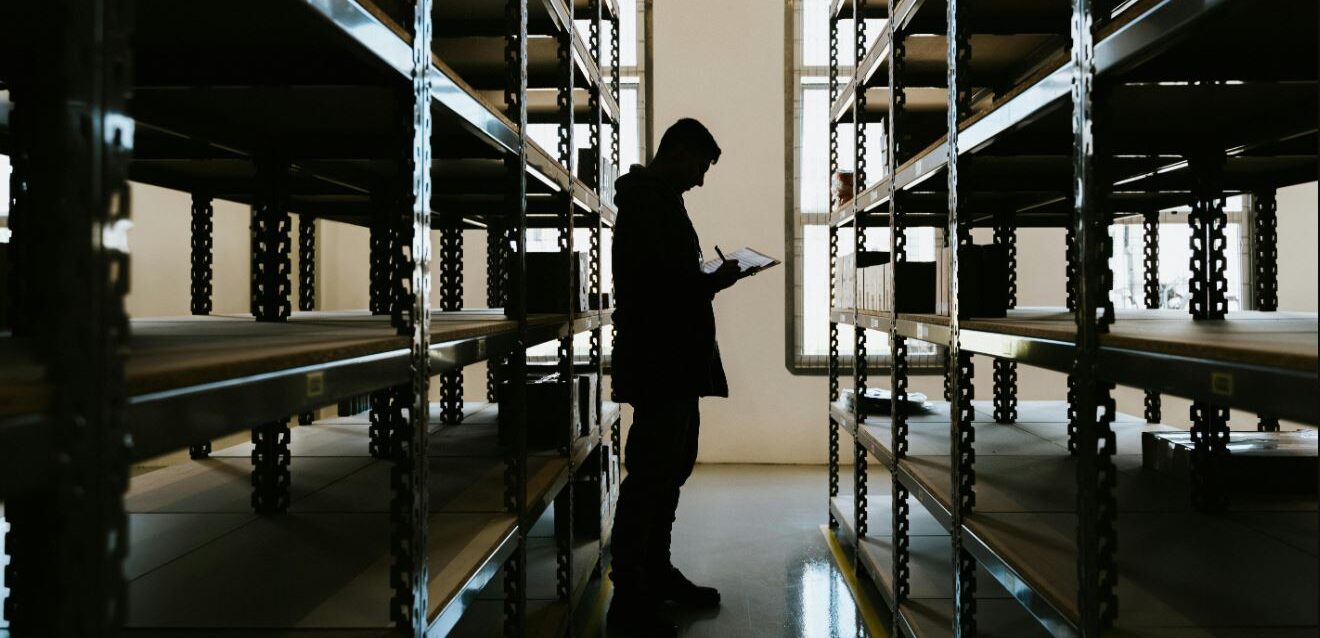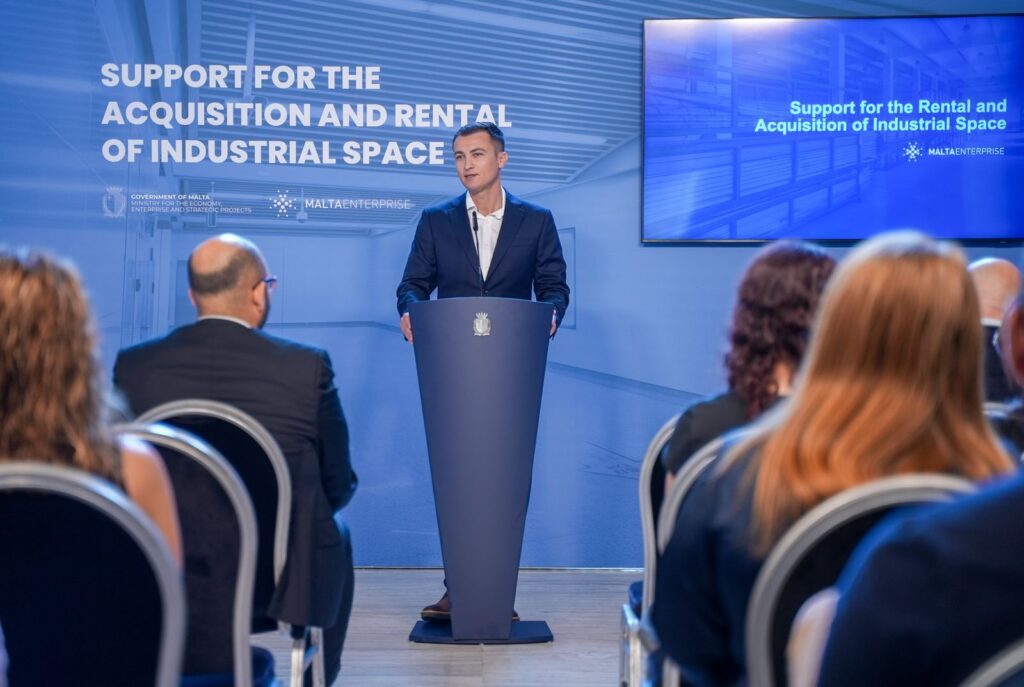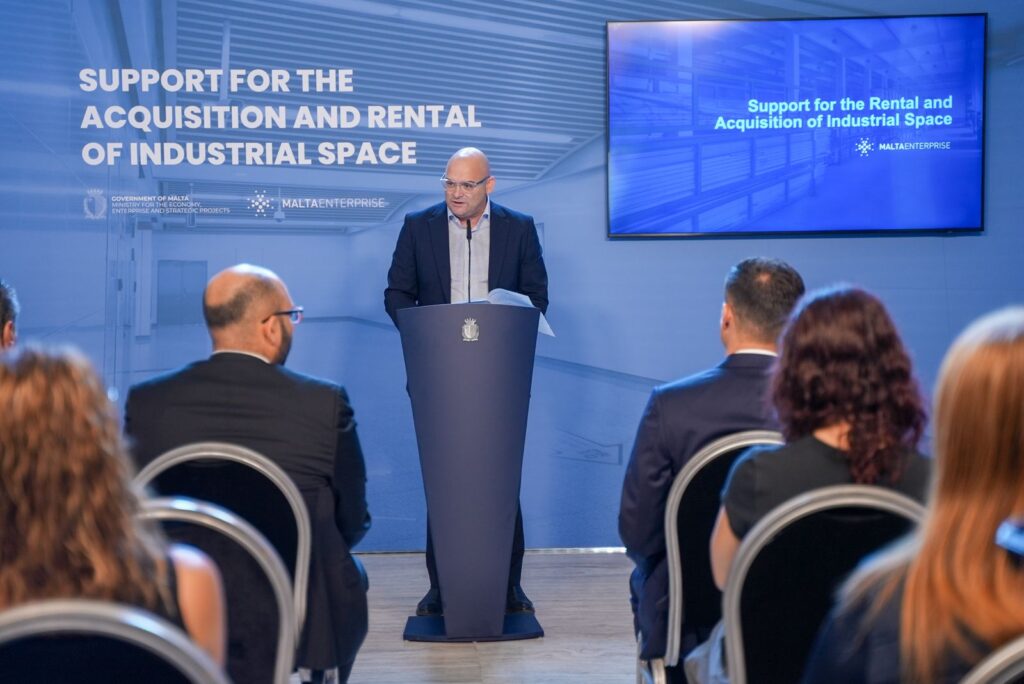


Published on 3 July 2025
•
4 min read

Small businesses and self-employed individuals in Malta can now benefit from a newly launched scheme aimed at easing the cost of renting or purchasing industrial space from the private sector.
The scheme, announced by Minister for the Economy, Enterprise and Strategic Projects Silvio Schembri on Thursday (today), will have an annual budget of around €2.5 million, with a total allocation of approximately €15 million over its duration.
It is important to note that while the scheme is open to both Maltese and foreign applicants, any business approved for support must be formally registered as a company in Malta. This ensures that all beneficiaries contribute to the local economy and comply with national regulations.
Speaking during the launch, Minister Schembri noted that Malta’s main economic challenge is no longer attracting investment, but accommodating it.
“In Malta today, our challenge is not how to attract investment, but where to accommodate it. In fact, under the Malta 2050 Vision, we are committed to preserving the limited industrial land we have for high-value projects. However, this does not mean we are forgetting about small businesses or the self-employed,” he said.
“This scheme addresses three key needs for business success – stability, peace of mind, and reduced bureaucracy.”

The scheme is open to companies operating in sectors such as manufacturing, artisanal production, industrial packaging, maintenance and repair of vehicles, repair of machinery and electronic equipment, and industrial laundry services.
Eligible businesses can receive up to €300,000 in financial support spread over six years, covering up to 50 per cent of the total cost of renting or purchasing industrial premises. The space must be used to launch a new business, expand existing operations, meet larger orders, improve the supply chain, or support distribution efforts.
Additionally, businesses currently operating within village cores may only benefit if they relocate to industrial zones, with the related permits for their former premises being revoked. This move is also intended to reduce the inconvenience caused to residents by such operations.
Malta Enterprise CEO, George Gregory, highlighted the impact of previous similar measures.
“Over the past five years, the Rent Subsidy Scheme has provided tangible support to many enterprises. During this period, Malta Enterprise supported more than 50 businesses with over €1.5 million in assistance to cover industrial rental expenses. Thanks to this, dozens of businesses expanded their operations and created or safeguarded quality jobs,” he said.
“This new scheme marks another step forward. It forms part of a broader strategy aligned with the Malta 2050 Vision to help Maltese and Gozitan businesses generate new wealth and create sustainable, high-quality employment.”

President of the Malta Chamber of SMEs, Paul Abela, also welcomed the scheme, describing it as “essential and much-needed support.”
“This assistance to facilitate the rental and purchase of private industrial space will be of great benefit to small businesses and will address a major challenge they face,” he said.
Further details published in the official incentive guidelines clarify that eligible businesses may benefit from both cash grants and tax credits. The total support available per business is capped at €300,000 over any rolling three-year period, with disbursement spread over six years and capped at €50,000 annually.
Aid may be granted for renting new industrial premises or purchasing them, provided these agreements are not finalised before applying. However, certain premises such as showrooms, display areas, and properties located in residential areas are excluded.
Applications must be submitted through Malta Enterprise’s Client Portal, with the first round opening on 1st August 2025. Businesses must meet several criteria, including having no significant outstanding tax or social security dues, employing fewer than 250 people, and operating within eligible sectors.
The scheme also requires that premises are appropriately classified for industrial use, and applicants must commit to using the space for the approved qualifying activities throughout the supported period.

Business Journalist
When she’s not writing articles at work or poetry at home, you’ll find her taking long walks in the countryside, pumping iron at the gym, caring for her farm animals, or spending quality time with family and friends. In short, she’s always on the go, drawing inspiration from the little things around her, and constantly striving to make the ordinary extraordinary.


